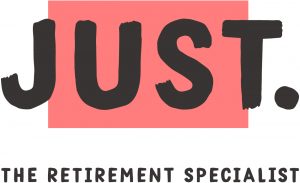Alex Leonidas tells us about his time as an Actuarial Analyst (Demographic Risk) at Just and offers his advice to those looking to pursue an actuarial role as an analyst…
Why did you choose a job in this sector/profession?
Having come from an educational background in engineering and growing up working on a market stall, the actuarial profession was perhaps not the first to be calling my name. However, it instantly became an attractive career path for me after meeting many highly intelligent and positive people in the profession through friends and through actuarial assessment centres and interviews. At Just I work with fantastic people on a daily basis and I feel I made the right choice when I joined as a graduate in 2019.
Like many other mathematically inclined graduates applying for actuarial opportunities, I was looking for intellectually stimulating roles that would allow me to put my problem solving skills to good use. In particular, I had read about how the actuarial profession was evolving in a technological sense. Studying engineering at university gave me the technological agility that has meant I have been well equipped for a role where I use programming languages such as R, SQL and VBA.
How did you get your job at Just Group PLC?
When I graduated from university, I wasn’t immediately sure what career I wanted to go into. I worked as a research assistant at my university for a few months before starting to apply for actuarial roles in London.
That’s when I found Just, and after reading their new starter profiles as well as what the company stands for, I applied. I have now been working at Just for 10 months and haven’t regretted a single moment.
What was the application process like – any advice?
The application process involved me submitting my CV online. Following that there were aptitude tests, a phone interview and finally a face to face interview.
In terms of advice, I would say certainly do your research on the company/the profession and your interviewers. Personally, I found that a great way to do some of this was by talking to people on LinkedIn who were more than happy to speak to me about things like what it takes to qualify and what their role entails.
What are your main duties/roles?
I work in the Longevity and Demographic Risk team. We aim to quantify longevity risk for all of our products as well as DB pension schemes.
My main duties include:
- Looking at our past experience, analysing the data and observing trends. These analyses serve as a performance metric for our models that aim to quantify our longevity risk. This involves maintaining and developing tools spread across various different programming languages.
- Testing a variety of different developments to our systems and documenting the changes.
- Risk modelling which involves developments to our models, model runs and collation of results for management.
- Finally, although not a main duty, I am also responsible for organising our team’s social activities.
Is it a 9-5 job?
Just encourage ownership of work, which is great for my development, but it does mean I sometimes stay a little later to finish off work.
I would say for the most part my hours tend to be 9:00 – 5:30. This can get a little tougher to manage around exams when I spend some of my weekday evenings revising.
What skills are useful in this sector/profession?
Key skills are of course technical ones but communication is crucial too. Actuarial models are complex and ideas need to be communicated in a cogent manner.
You also need an appetite to learn, I think it’s important to be adaptable and having a willingness to learn new things. You never know when you might be put on a project that puts you in unchartered territory. Something I have found useful at Just is to go on mini-rotations and make good use of in-house expertise.
What would you like to achieve in the future?
As I have just begun my actuarial journey, for now I have my sights set on qualification. Beyond that I know I would like to remain in longevity.
I have been given the opportunity to work with some highly respected longevity experts and hopefully one day, I can follow in their footsteps.
Do you have any advice for anyone wanting to get into the industry?
Speak to people in the profession and look into the syllabus and the exam structure set by the IFoA. This will give you a useful overview of what’s required to qualify as an actuary.





